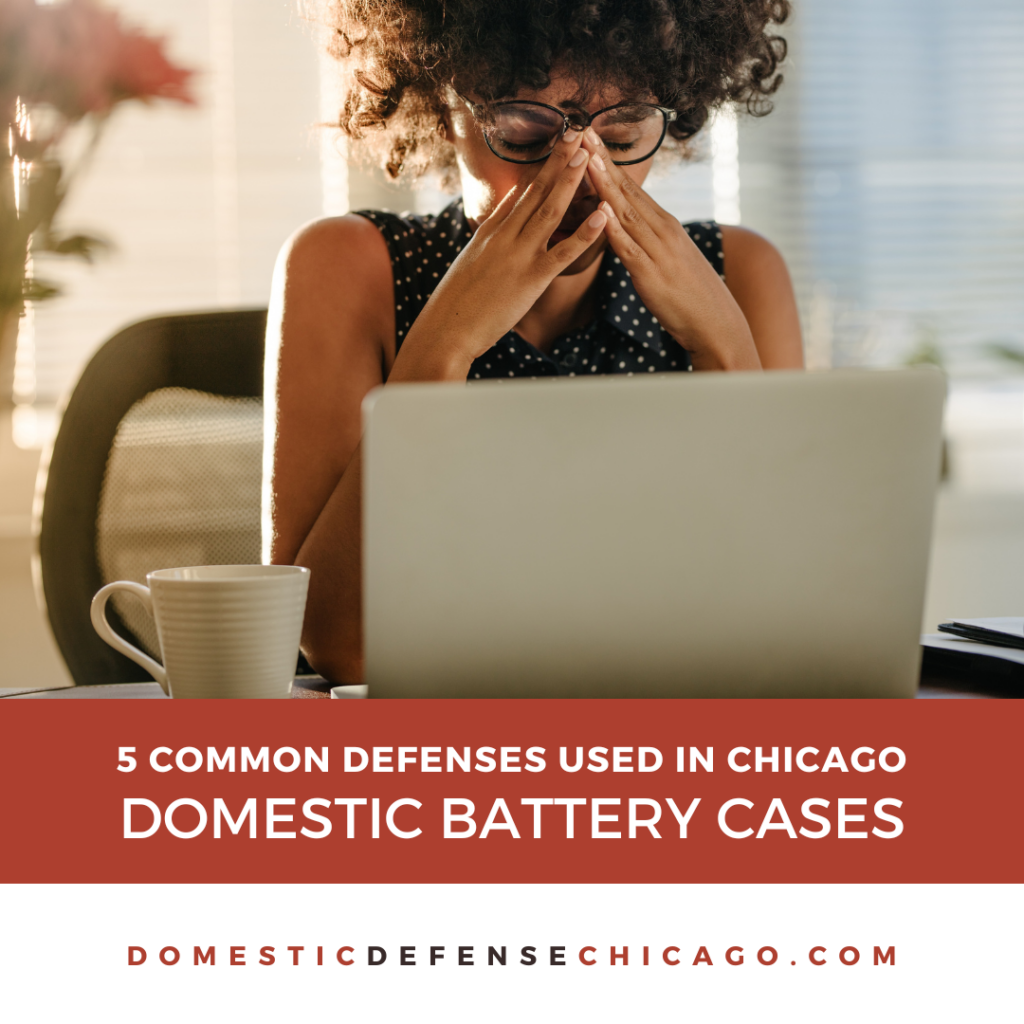Facing domestic battery charges in Chicago can feel overwhelming, but understanding your legal options is essential. Building a strong defense can help you navigate the complexities of the case and protect your rights. This guide explores five common defenses used in domestic battery cases and how they may apply to your situation.
5 Common Defenses Used in Domestic Battery Cases in Chicago
This guide explains the following:
- Lack of evidence
- Self-defense
- False accusations
- Lack of intent
- Consent
Here’s a closer look at each.
Lack of Evidence
One of the most effective defenses in a domestic battery case is challenging the evidence. The prosecution must prove the charges beyond a reasonable doubt, and without sufficient evidence, the case may falter. Examples of insufficient evidence include:
- No physical injuries or medical reports
- Lack of credible witness testimonies
- Absence of corroborating evidence, such as text messages or video footage
Your attorney can review the prosecution’s case to identify weaknesses and argue that the evidence is inadequate to support a conviction.
Self-Defense
Self-defense is another common defense in domestic battery cases. If you acted to protect yourself from harm, your attorney could present evidence that demonstrates you were not the aggressor. To successfully use this defense, you’ll need to show:
- You faced an immediate threat of harm
- Your response was proportional to the threat
For example, if the alleged victim initiated physical contact or attempted to harm you, your actions may be considered justified under Illinois law.
False Accusations
False accusations are not uncommon in domestic battery cases, often arising from personal conflicts, custody disputes, or attempts to gain an advantage in a divorce. If you believe the accusations against you are false, your attorney will investigate the motives behind the allegations and gather evidence to disprove them.
This may include obtaining witness statements, reviewing communication records, or highlighting inconsistencies in the alleged victim’s story. Proving false accusations requires a thorough and strategic approach, which is why working with an experienced attorney is crucial.
Lack of Intent
Domestic battery charges often rely on proving that the accused acted knowingly or intentionally to cause harm. If the alleged contact was accidental or unintended, your attorney can argue that you lacked the intent necessary to commit the offense.
For example, if physical contact occurred during a mutual struggle or as part of an accidental movement, this defense could apply. Demonstrating a lack of intent involves analyzing the circumstances of the incident and presenting evidence that supports your account.
Consent
Although less common, consent can be a valid defense in some domestic battery cases. If the alleged victim willingly participated in the actions that led to the charges, your attorney can argue that their consent negates the claim of battery.
For instance, in situations where roughhousing or playful physical interactions were misinterpreted, consent may serve as a defense. Proving this requires clear evidence, such as communication or witness testimony, that establishes mutual agreement.
Building a strong defense in a domestic battery case requires careful analysis of the evidence and circumstances surrounding the incident. With the right legal strategy, you can challenge the charges and work to protect your rights and future. Consulting with a knowledgeable domestic battery defense lawyer can help ensure that you’re well-equipped to navigate the legal process.
Do You Need to Talk to an Attorney About Domestic Battery Defense?
If you need to talk to a domestic battery defense attorney in Illinois, we’re here to help. Call us at 847-920-4540 now – we’ll be happy to give you a free consultation and talk to you about your options.







Leave A Comment
You must be logged in to post a comment.